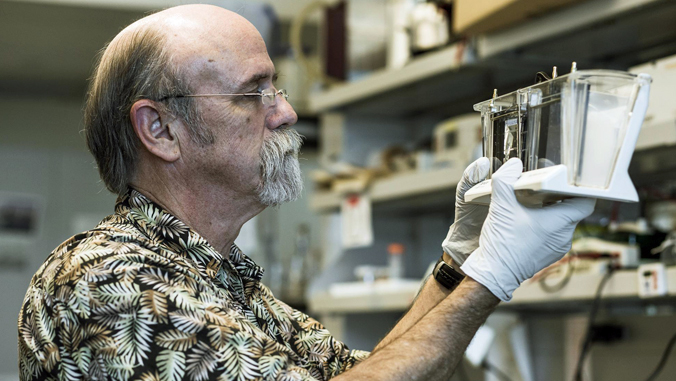
Robert Nichols at the University of Hawaiʻi at Mānoa’s John A. Burns School of Medicine (JABSOM) and collaborators may have discovered a potential new way to combat the destructive effects of Alzheimer’s disease.
They observed that applying a smaller, non-toxic fragment taken from an already microscopic protein fragment called a “beta amyloid” peptide, or compound consisting of two or more amino acids linked in a chain, can actually protect the nerve cells and restore normal memory processing.
The discovery was unexpected, because high levels of the beta amyloid peptide, in its larger form, are associated with developing Alzheimer’s disease.
“We believe this is an exciting, new approach, because we are trying to modulate how amyloid is actually acting and causing toxicity in the brain rather than simply lowering it,” Nichols said. “So we’re delivering this small fragment, but the bonus is that this fragment itself seems to be driving neuroprotection in the brain.”
Currently, Nichols is working with scientists at the University of Arizona to design and screen compounds based on the peptide fragment for future drug development.
Alzheimer’s is the sixth leading cause of death in the U.S., according to the Alzheimer’s Association. In Hawaiʻi, the number of people ages 65 and older affected by this disease is expected to rise 25 percent by the year 2025.
—By Deborah Manog Dimaya

